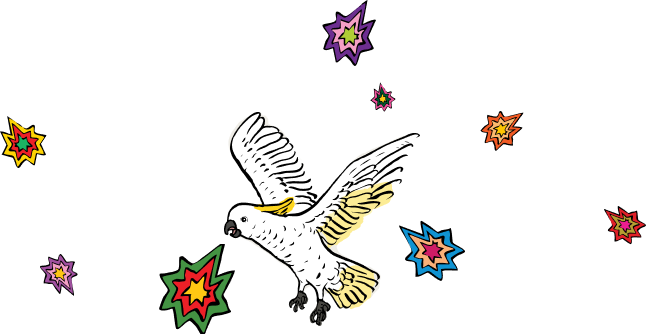Reviewed by: Mindshare
mindshare is a creative community and online mental health publication. Reflections are by mindshare writers with lived experience of mental illness, specifically critiquing through a mental health lens. Content may contain triggering themes.
If you don’t love musicals already, you might after seeing this show. The Aspie Hour is an irreverent, clever, and very entertaining homage to the transformative power of musicals, written and performed by Sophie Smyth and Ryan Smedley, two talented autistic performers and musical superfans.
With a unique musical reference approximately once every 2 minutes and 20 seconds, the show covers a lot of ground with virtuosity and panache. Songs adapted from musicals The Wizard of Oz to Hamilton and everything in between are used as vehicles for snapshots of what navigating the world can be like for autistic people. Educational without being preachy, Smyth and Smedley don’t shy away from difficult topics, and aside from the excellent homage to musicals, another key strength of this show is its exploration of the intersection of disability and mental health.
A note about disability:
For many, the terms ‘disabled’ and ‘disability’ are negative, conjuring up hospitals, doctors, and treatments. This is a pathologized view, meaning that disability is perceived as a medical problem, something less than able-bodied, something to be fixed. This negative view of disability is closely tied to capitalism, eugenics, patriarchy, and white supremacist delusion, because it compares all disabled people to an imaginary ideal that trends able-bodied, cis male, profitably productive, and white.
There is another, more empowering basis for using the term ‘disabled’ that is increasingly common, especially among disabled people. Sometimes called the ‘social model of disability,’ this view emphasizes the strengths, lived experience, and personal goals of disabled people. It centers disabled people’s humanity, and challenges the barriers society puts in the way of our access, rights and thriving.
Affecting about 4% of the Australian population, Autism consists of significantly different brain physiology that makes social-oriented reasoning harder, and logic-oriented reasoning easier for autistic people. As an invisible disability, it comes with the double pain of ‘passing’ — the barriers society presents autistic people with are both crippling and erased in our ableist culture. We are able-bodied enough to be measured by ableist standards, and disabled enough to be excluded and shunned when we don’t meet those standards.
Ahem, now that’s out of the way…
As an autistic reviewer with lived experience of mental illness, I really appreciated the show’s discussion of mental illness as part and parcel of being autistic in neurotypical society. In musical numbers such as “Gimme That Thing Called Meds,” the intersection of autism, depression and anxiety are touched on with levity and grace. Another special mention goes to the entertaining and nuanced discussion of autistic dating. Autistic mental health is very tied to dating and relationships, due to the difficulty autistic people have with communicating intimacy in neurotypically appropriate ways, complicated by especially high assault and intimate partner violence rates.
In the vein of Book of Mormon, The Aspie Hour for the most part skillfully walks the line between appropriate and bawdy. The scarecrow empathy song, and “How to Lose a Man” are shining examples of Smyth and Smedley’s skill in navigating this balance. However, on rare occasions, this risky approach veers a little too far into off-colour territory.
I found the mentions of functioning labels and self-diagnosis problematic. Early on in the show, Smyth and Smedley distance themselves somewhat from ‘low functioning’ autistic people when discussing their diagnoses with Aspergers (a condition now referred to within diagnoses of Autism Level 1). Such distinctions are arbitrary — as any autistic person can tell you, we all have times where we are ‘nonfunctional’ — and serve to perpetuate ableist discrimination among autistic people. In the same portion of the show, Smyth and Smedley also take several jabs at self-diagnosis, which is completely valid, and for many is the only means available. Autism diagnosis is notoriously hard to access due to: prohibitive expense, availability of assessment services, and racial and gender bias in medical profiling. However, these are small and infrequent blemishes on an otherwise wonderful show.
Embodying world-renowned autistic creative Temple Grandin’s often repeated statement that autistic people are “different, not less,” this is a show for lovers of musicals, and anyone else who’s been accused of being too much, too nerdy, or too anything else not popularly palatable. Four point five stars.




